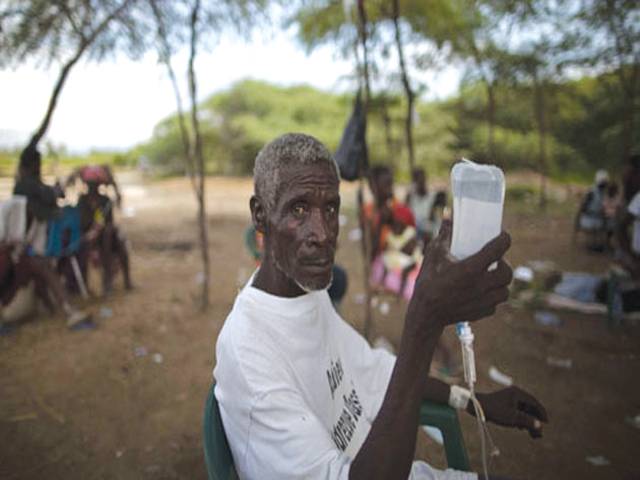PORT-AU-PRINCE-The cholera outbreak that hit Haiti after Hurricane Matthew slammed the island has been contained but persists due to lack of funding, according to the United Nations.
An epidemic of the waterborne disease - which spread after a massive earthquake shook the nation in 2010 - saw a resurgence after Matthew devastated the country in early October.
The number of recorded cholera cases more than doubled in Haiti between September and October. Almost half of the patients were in the two southern departments hardest hit by the hurricane - areas that until now were not major focal points of the fight against cholera. Suspected cases of the disease fell 25 percent - from 2,400 to 1,800 - between October to November, according to the latest report from the UN Office for the Coordination of Humanitarian Affairs (OCHA) in Haiti. The UN says the situation has improved thanks to a three-fold increase in the deployment of emergency teams, the delivery of drinking water aid and a vaccination campaign.
But funding is critical to support the humanitarian needs of the poorest country in the Americas, said Mourad Wahba, the deputy special representative for the UN’s stabilization mission in Haiti.
No funds have been set aside yet beyond the first quarter of 2017, which OCHA said could lead to a heightened risk of hospital mortality if none are ultimately allocated.
“The rainy season will return and inevitably there will be an increase in the number of cholera cases,” said Wahba.
“I’m optimistic, but it all depends on the funding.”
Cholera struck nearly 40,000 patients between January and November, killing 420 of them. On a global scale, Haiti’s cholera epidemic is the most vicious in recent history.
The disease causes acute diarrhea and is transmitted through contaminated drinking water - a major challenge in a country with poor sanitary conditions.
According to numerous independent experts, cholera was introduced to Haiti by infected Nepalese UN peacekeepers sent to the Caribbean country following the earthquake.
Since October 2010, the epidemic has killed more than 9,400 Haitians and infected more than 800,000 people.






